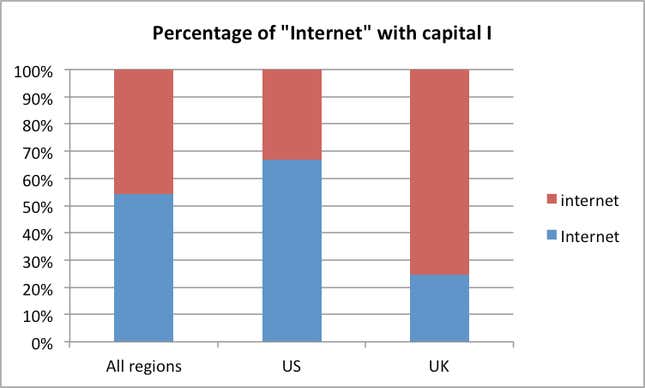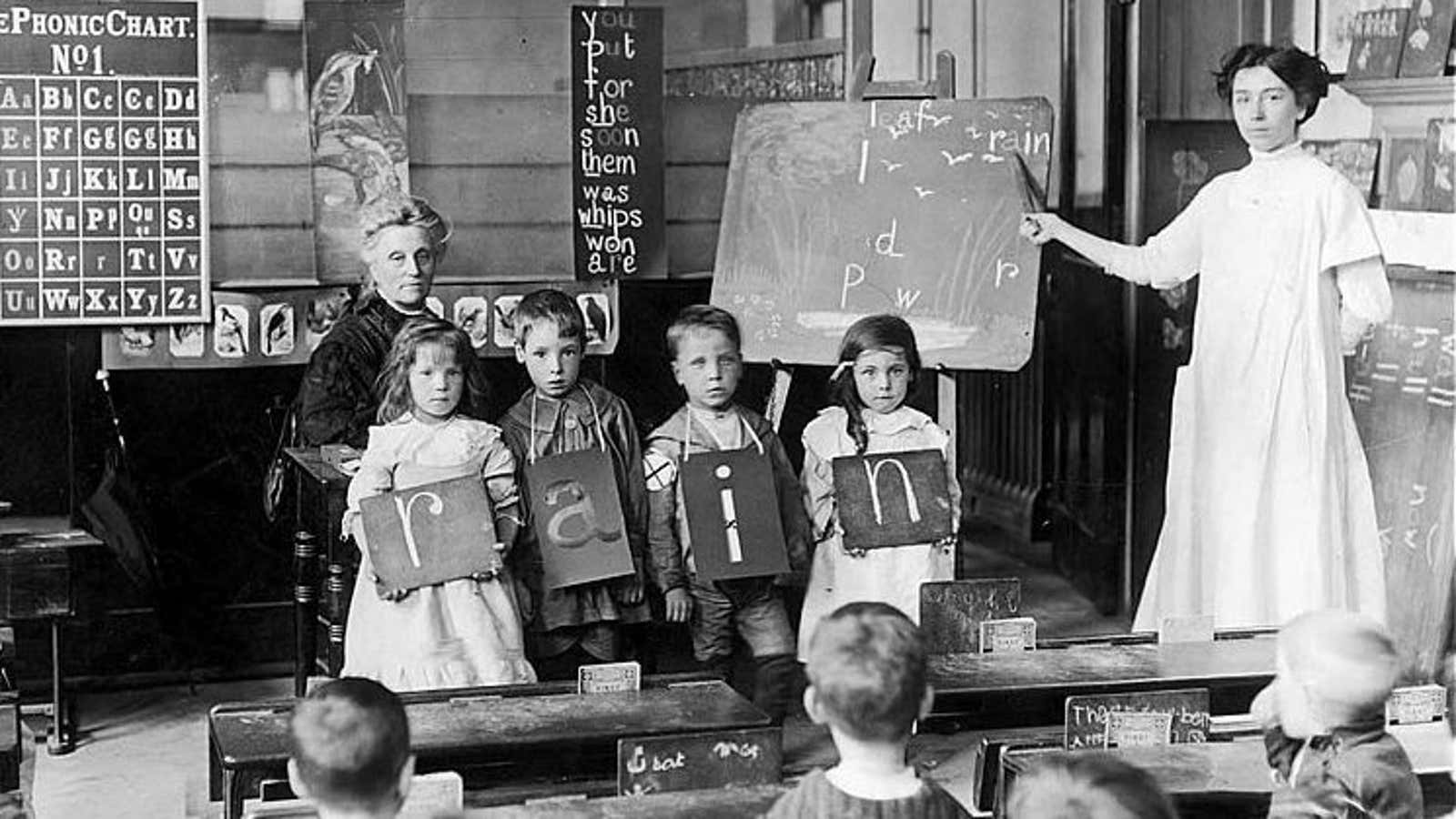Hold the presses—or at least the lowercase i’s.
Vint Cerf, Google’s chief internet evangelist and one of the “fathers of the internet,” said the Associated Press (and much of the world, including Quartz) is wrong and the word “internet” should be capitalized. As of June 1, the Associated Press Stylebook declared it will only use the lowercase form.
“The editors at AP fail to understand history and technology,” Cerf told Politico on Wednesday (June 1). His beef is that there has always been a line between the public internet and a private internet that has no connection to the outside world, although it shares the same TCP/IP protocols. This, he warns, is simply daft. “By lowercasing you create confusion between the two and that’s a mistake,” he wrote.
Oxford Dictionaries, for its part, is closely monitoring this controversy. The dictionary draws on a “monitor corpus” of nearly 2.5 billion words from online and printed sources. These represent all types of English language materials, including literary novels, trade journals, daily newspapers, blogs, and social media.
By that measure, “internet” had not won the war of words as of April. Only 46% of total mentions of “internet” used the lowercase form. In the US, it was less than 40%.

There is change on the horizon. The UK has moved firmly into the lowercase camp, with most established British media outlets going that route. In the US, online and tech-focused outlets like Buzzfeed and Wired are doing the same.
Stay tuned. Oxford Dictionaries says it will be tracking the corpus “to see if lowercase internet makes new headway against the capitalized form.”
